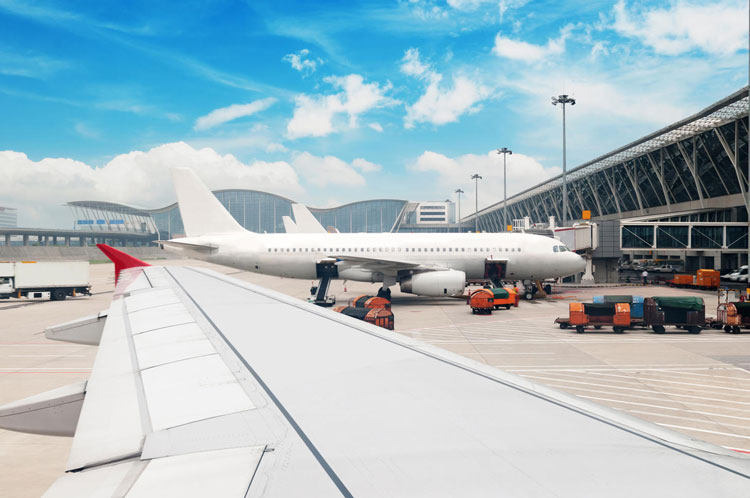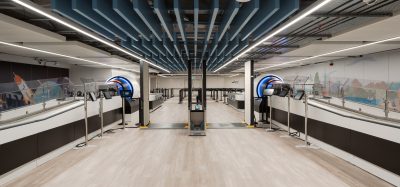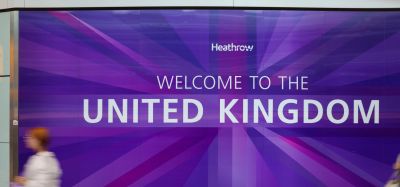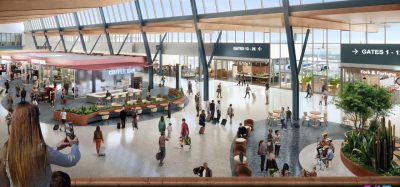Interview Spotlight: T-Systems and Frequentis
- Like
- Digg
- Del
- Tumblr
- VKontakte
- Buffer
- Love This
- Odnoklassniki
- Meneame
- Blogger
- Amazon
- Yahoo Mail
- Gmail
- AOL
- Newsvine
- HackerNews
- Evernote
- MySpace
- Mail.ru
- Viadeo
- Line
- Comments
- Yummly
- SMS
- Viber
- Telegram
- Subscribe
- Skype
- Facebook Messenger
- Kakao
- LiveJournal
- Yammer
- Edgar
- Fintel
- Mix
- Instapaper
- Copy Link
Posted: 22 December 2021 | International Airport Review | No comments yet
At the recent inter airport Europe trade fair in Munich, T-Systems and Frequentis signed a partnership agreement to pool their aviation expertise. Charly Fesl, Director of Airports at Frequentis and Edgar Ziller, Director of Strategy and Partner Management Airports at T-Systems, spoke to International Airport Review about this new alliance.


What is the common vision of Frequentis and T-Systems and the added value for the customer?




What are the targets of the partnership between Frequentis and T-Systems?
Charly: Frequentis and T-Systems are a perfect fit; our products are totally complementary. Therefore, the goal of the partnership is to increase our competitive market positioning and, in turn, our market share of airport business. We will also look to create a new market through innovative approaches, especially through workflow-based solutions, which will see us integrating T-Systems products with Frequentis products.
T-Systems are at the heart of an airport. Frequentis can use this competence, creating the workflow-based solutions that airports require. Air traffic control (ATC)-related services for airports, together with T-Systems will guarantee a seamless connection of ATC services, and airport operations, coming from airside to landside and vice versa.
What are the initial strengths of each partner to this strategic alliance?
Charly: The Frequentis vision is to be number one in control centre solutions, and we do this worldwide. We have the ATC knowledge along with market-leading, world-class solutions such as the arrival manager, departure manager and best-in-class remote digital towers. But, also in the public safety domain, we have control centre solutions for security, firefighting, and for emergency and crisis management. Of course, all this ensures smooth and safe operations at an airport.
Edgar: T-Systems has been in the business of airport management solutions for a long time and, today, we can confidently say we are in the top four global airport management solution vendors. Our airport knowledge, together with our market-leading, global solutions, which include airport management solutions, airport operational database, resource management, terminal management, the airport collaborative decision making (CDM), flight information display, master systems integration and ground handling management. These are our core competencies, and Frequentis has the complementary knowledge, so it fits perfectly together with Frequentis.
How will the partnership streamline processes from airside to landside and vice versa?
Edgar: The seamless connection of air traffic, and control services, and airport operations is our main goal. The integration of the aligned products from T-Systems and Frequentis will drive the digital transformation of major processes at airports – even those that are still untouched. Within the airport silos, some digitisation has advanced very well, but not continuously through the value chain. There is still finger-pointing, and still breaches in digitisation. Digitisation will in turn reduce the carbon emissions and, by streamlining the processes, increase the resilience of operations. Becoming carbon neutral is not just a European challenge, it’s also a challenge for emerging countries – even for the third world. They all know what will happen if we don’t achieve these targets. We want to help the airports of the world to get further in their decarbonisation agendas – not just Europe.
Will this partnership result in improvement of the passenger experience?
Charly: Of course. Less disruption means reduced waiting time and less gate changes. This is the best airport product for passengers. It’s all about transparency, and a smooth process through the whole airport. This is also something needed during the current pandemic, where airports have reduced staff available for operations. This integrated solution allows them to concentrate on where the high priority tasks are and work on solving them. This is the advantage that will improve the passenger experience.
What regulatory challenges (changes) will be addressed?
Edgar: Our industry in Europe has been struggling for decades with performance and delays. Within the Single European Sky programme, we see a lot of potential and we think we can help in this area. We will strongly support the Airport Operations Plan (AOP), which is a new approach to providing forecasts up to 180 days in the future, and much more information, including weather. By combining that we will be ahead of others, regarding the AOP which, in combination with the Network Operations Plan from air navigation service providers (ANSPs) and EUROCONTROL, will be needed for the next generation of airports. After CDM has become a commodity, the AOP is the next step to improve airports and network performance.
We are also actively involved in several committees with the ongoing European Union Aviation Safety Agency (EASA) and ICAO compliance rules. We will invest in that, and contribute to helping our whole industry, and we will address this in the future as well. CO2 tax is also a future challenge, and it will continue to increase. We will be tackling this, and it will also be a benefit for the airlines.
What will be the lighthouse product of this thrilling alliance?
Charly: Frequentis and T-Systems have designed a digital Airport Operations Centre (APOC) providing a unique solution which increases the overall airport performance combining airport operations, firefighting, security control, external stakeholders, and also ATC
Overall, the pandemic has shown that the customer needs a tailored, flexible and scalable solution, because, when only 10 per cent of passengers are at the airport, costs must be saved. This is also the case in disruptive and volatile phases – we can support this goal with T-Systems and Frequentis’ integrated platforms, to enable hybrid cloud operations.
Issue
Related topics
Air traffic control/management (ATC/ATM), Airport Collaborative Decision Making (A-CDM), Autonomous Technology, Digital transformation, Passenger experience and seamless travel, Sustainability, Sustainable development


















